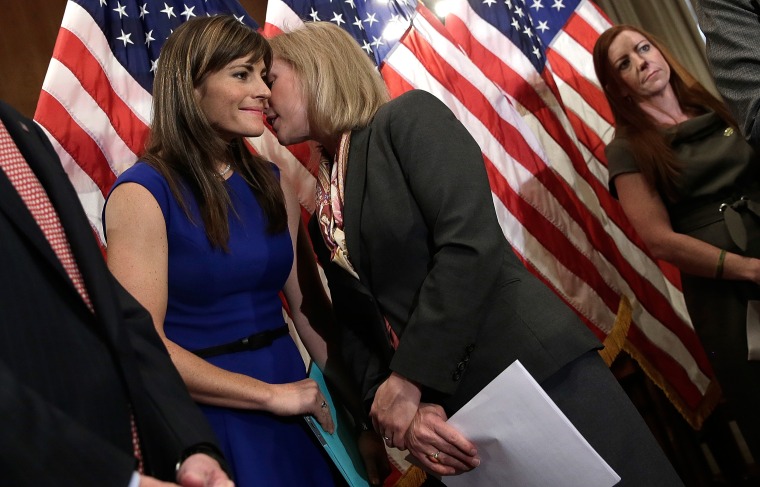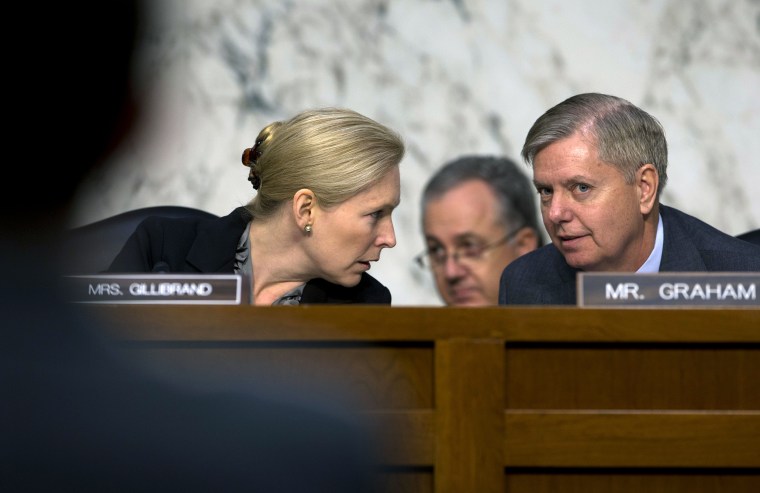How do you speak truth to power when your job is to keep quiet and follow orders at all costs? For women in the military, obeying authority isn’t just workplace etiquette, but a pillar of standard protocol. So when their bodies are violated, silence rules — as a matter of honor.
New figures on sexual violence in the military ranks, however, shed light on the Pentagon’s most dishonorable taint. From fiscal years 2016 to 2017, reports of sexual assault in the armed services rose 10 percent from 6,172 in to 6,769. Estimated prevalence of assault had briefly dipped in previous years, and the government had recently taken some steps toward reforming the justice system for sexual abuse cases.But the uptick paralleled a plunge in military conviction rates, from 413 to 280 between 2015 and 2017.
Meanwhile, the Trump administration — in addition to undermining gender discrimination protections in civilian law — has been steadily eroding the military’s modest efforts under Obama to improve internal accountability on gender-based violence, further stifling discussions in the Pentagon leadership on delivering meaningful justice for survivors of military sexual trauma. Despite Trump’s talk of “supporting our troops,” the bleak reality is that for victims, honor comes at the expense of justice.

While it has sparked a feminist surge in the public sphere, the #MeToo movement, with its emphasis on public accountability, publicizing survivor stories, and collective action, doesn’t work in a military culture premised on marching in lockstep with your unit. The military code of conduct essentially precludes questioning authority — even when your drill sergeant demands push-ups every morning just to grope you as you drop for a set. What happens when a woman raped by her commanding officer has to report it to her commander’s best friend. The “he-said-she-said” dynamics of a harassment allegation could automatically spiral into a superior officer’s authoritative word drowning out the testimony of a lone woman ensign.
Then there are the everyday terrors of, for example, being assigned to overnight guard duty on an isolated base where just going to the bathroom at night brings the risk of assault, with no witnesses and no recourse. Even in broad daylight, sexual harassment is normalized in military culture, often masked as “banter” aimed at “toughening” up young soldiers — ignoring the internal battles women fight constantly as an isolated minority.
An institutional culture that revolves around “breaking” soldiers' spirits places a brutal double burden on women servicemembers: be docile, be strong, betray no emotion but unwavering loyalty. The consequences of this dual oppression is a crushing pressure on women to be brave except when it comes to defending your own sense of dignity. The Pentagon reports that about 60 percent of survivors who report sexual assault face retaliation, which suggests that, behind the upward trend in reporting, lies a shadow figure of untold stories of survivors who are haunted by the threat of being disbelieved, being shamed by peers, or losing their careers.

Senator Kristen Gillibrand, D-N.Y., and other lawmakers have been pushing for a structural overhaul to ensure greater accountability for sexual violence, starting with placing investigations under the authority of independent prosecutors, rather than commanders. Trump’s hyper-nationalist drive to demonstrate U.S. military might, however, leaves scant room for addressing corruption within its ranks.
Accountability, though, is just half the battle: The survivor community, both active duty and veterans, must be made whole in order to heal. There are currently critical gaps in mental health support for both active duty and veteran survivors; the Veteran's Administration lacks clinicians with expertise in handling sexual trauma cases. But even after leaving the service, many victims cannot connect with the long-term care and peer support systems they need for recovery, and must struggle with the aftershocks of abuse throughout their lives, sometimes descending into a spiral of post-traumatic stress disorder and self-harm, with heightened risk of substance abuse and suicide. According to the Service Women’s Action Network’s survey of nearly 1300 women military members, about half said their mental health had suffered due to “some aspect of bias, harassment or assault” in the military.
The crisis in sexual abuse services ties into a broader management crises at the VA. Trump’s proposed solution is to privatize the system, but to really confront military sexual trauma, specialized services for survivors must be strengthened, not outsourced. SWAN calls for a restructuring of military healthcare systems to create gender-specific treatment and post-military transition programs devoted to helping service members cope with sexual trauma and the emotional challenges of readjusting to life after service. If survivors cannot obtain justice against their abusers, they at least deserve the right to heal.
SWAN calls for a restructuring of military healthcare systems to create gender-specific treatment and post-military transition programs.
Facing an epidemic of abuse, the military culture of loyalty promotes a warped idea of valor that enforces silence in the name of “service.” As veteran advocate Merci McKinley recalled in a testimony for SWAN, “For me, surviving was all about serving.” But after trying to bury her secret by throwing herself tirelessly into her military career, she said, “One day I realized I was doing a disservice to myself. I lost my hope in myself and in others and my trust was compromised.”
We demand self-sacrifice from soldiers every day, and one day of the year we commemorate those who made the ultimate sacrifice. But the dark side of military patriarchy’s honor is an unspeakable shame. Every institution of war inherently involves brutal hierarchy, but when the veneer of valor masks the dehumanization of its own service members, the survivors become the ultimate casualties of honor’s betrayal.
Michelle Chen is a contributing writer at The Nation, a contributing editor at Dissent and a co-producer of the “Belabored” podcast and Asia Pacific Forum on WBAI FM.

